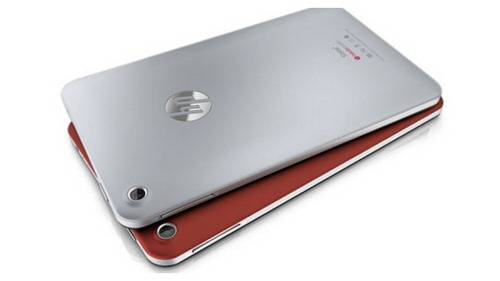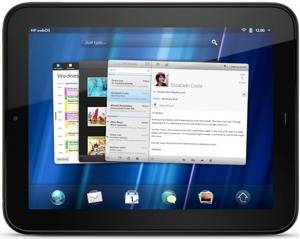
Hewlett-Packard is throwing in the towel on WebOS, abandoning the dream of dominating the smartphone industry with its own mobile operating system. According to reports, HP is selling webOS to consumer gadget manufacturer LG for use in the company’s smart televisions.
The sale, first reported by CNET, marks the end of a sad era for the once promising mobile operating system developed by Palm and sold to HP for $1.2 billion in April 2010. It is hard to imagine how HP could have bungled how it handled WebOS any worse than it did before essentially quitting on the operating system and eventually selling it.

Finally Free Of HP’s Mangling
When HP bought Palm, it envisioned a robust line of phones and tablets that would compete head-to-head with Google’s Android and Apple’s iOS products. The company spent a year developing the HP TouchPad, which launched on July 1, 2011. The launch did not go well for HP and within a couple of months the company had pulled the plug on trying to bully its way into the tablet market and began a fire sale of existing TouchPad inventory, selling the device for $99 on a first-come, first-serve basis.
At the time, the reversal of HP’s mobile strategy seemed like a stunning knee-jerk reaction. The TouchPad was only on sale for a couple of months before HP gave up on it and, really, WebOS HP pulled most of its development resources from WebOS shortly thereafter and open-sourced WebOS whilst, theoretically, offering structure and support to the operating system.
In the end, nothing new came from HP after it open-sourced WebOS in January 2012. A little more than a year later, it is unloading the operating system to LG, which does not plan to use it in smartphones or tablets.
HP Goes Android
We knew the death knell was coming for WebOS at HP earlier this month when ReadWrite reported that HP would be turning to Android for next foray into the mobile market. Yesterday, HP announced a $169 Android tablet – the Slate 7 – it will begin selling in April this year.
If HP was unable or unwilling to create an ecosystem that could have supported WebOS moving to Android was the next logical choice. Android has hundreds of thousands of apps, a loyal following and a trusted name among consumers. Android is open source and costs HP very little to develop to place it into its own devices. If HP had come to the decision to use Android earlier, it could have saved itself $1.2 billion plus the time and development resources it put into building the TouchPad. WebOS of course, would have been free of HP’s mangling fingers.
The Android ecosystem is extraordinarily competitive. The only tablets running Android that get any modicum of marketshare are the Amazon Fire series and Google Nexus 7, built by Asus. Samsung’s variety of Galaxy Tabs and Notes also hold some weight in the market. HP is hoping that its bargain-rate pricing of its new Slate 7 (pictured top) will be able to cut into the tablet sector, but do not bet on it. There is no shortage of cheap Android tablets for HP to compete with.
LG’s Smart TV Bet
Depending on the cost of acquisition (which was not reported), LG’s bet on a smart television running on a WebOS kernel is fairly safe. The beauty of WebOS is the fact that it is designed to be mobile Web compatible. With WebOS LG can bring the entire Internet to a television, not just a series of apps designed to run on large screens.
Will it pay off? That is a harder question to answer. The connected-TV race has supposedly been on the cusp of taking off for years now. As yet, it has not gained the type of traction that one would have hoped. Samsung and a variety of other players make Internet-connected televisions but their products remain a consumer niche. Then there is the question on whether Apple will go full-tilt and make its own television, which nobody outside of Cupertino knows right now.
In the end, WebOS lives another day. Whether we will ever hear from it again is a different story.
Update: Talking to reporters at Mobile World Congress, Hewlett-Packard said that it is not selling the entirety of WebOS to LG. HP will only sell the source code, documentation, websites and staff responsible for building WebOS. HP will retain the cloud aspects of the system, including app catalogue, backend systems and updating service.

















